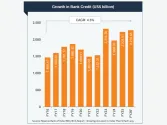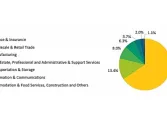
Foodservice in Southeast Asia forecasted to grow by 7.2% in 2020
It could take a hit due to certain markets likely impacted in Q1 due to the COVID-19 outbreak.
Sustained sales growth is expected in most Southeast Asian (SEA) markets this year, but costs and uncertainty regarding the ongoing COVID-19 outbreak could prove to make a significant impact in profits.
Rabobank’s Foodservice 2020 Global Outlook forecasts the region’s foodservice industry to grow by 7.2% more than 2019’s US$129 billion in sales.
Whilst Indonesia’s foodservice sector earned US$41 billion last year, the Philippines - which contributed US$14 billion to the region’s overall growth in 2019 - is projected to lead foodservice growth in 2020 by 11.2%.

However, the bank noted that operator profits in the Philippines and Vietnam are expected to come under pressure in 2020 due to African swine fever (ASF) spreading in the region.
“Singapore aside, the Philippines and Vietnam have the highest levels of per capita consumption of pork in Southeast Asia. A shortfall in pork supplies will drive up raw material costs for operators and likely result in a shift to chicken and other animal protein,” the report explained.
Singapore’s foodservice growth will remain steady but “unspectacular”, Rabobank said. Operators’ focus, it said, will be on launching innovative food concepts and labor and rent costs.
Similar to 2019, Rabobank expects 2020 to be a “good year” for foodservice in Indonesia, with chained operators are expected to close 2019 with double-digit revenue growth, and store expansion plans having been put in place for 2020.
“Independent/informal operators are, however, expected to survive, with delivery
aggregators providing a boost by bringing in incremental volumes. 96% of the
restaurants listed on Go-Food – one of the leading food delivery platforms – were
micro-, small-, and medium-sized enterprises,” the report noted.
For Malaysia, Rabobank recommends operators to offer more value deals to drive growth, explaining that concerns exist over weaker household spending, including discretionary spending.
“Delivery aggregators who regularly offer discounts will be a growth driver across formats,” it added.
On Thailand, Rabobank said the country’s industry performance will be on par or marginally better in 2020. Like Malaysia, they suggest that operators may need to continue to
offer value deals to bring in consumers.

Chicken ‘a growing area of interest’
Category-wise, chicken is said to be a growing area of interest for the region, noting Minor Food’s recent acquisition of the franchise of Bonchon Thailand, and Shakey’s acquiring Peri-Peri Charcoal Chicken in the Philippines.
“In 2020, we expect interest in chicken foodservice targets to grow further, due to growing consumer acceptance of the protein, its flexibility to suit multiple cuisines, and preparation methods,” the report noted.
Tourism in SEA to take a hit, drag foodservice revenue down
In a separate note on COVID-19’s impact, however, Rabobank said the continuing impact of tCOVID-19 and the resulting tourist decline across the region will mean slower growth.
"Estimating the impact on foodservice, we expect Singapore to be the worst-hit. We expect the foodservice industry in Singapore to contract in 2020 to 2019 levels," Rabobank said, noting that the Singapore Tourism Board is projecting a 25% to 30% decline in tourist arrivals.
"Furthermore, local consumers have stayed at home due to local transmission fears, which has further aggravated the impact," the bank added.
Thailand is expected to follow Singapore in the slowdown in foodservice growth, citing international arrivals in the first half of 2020 expected to drop by 50% from 1H 2019 levels. For the full year, tourist arrivals are expected to fall by 9.5% to 12%.
"As local transmission of the virus has been minimal, domestic foodservice consumption has not been directly impacted. However, tourism is a key contributor to total employment (6.2% in 2017), and as local income drops, so will discretionary spending. The cumulative effect will result in foodservice growth of 2% to 3%, considerably lower than the 6.4% predicted prior to coronavirus," Rabobank said.
For Vietnam's tourism, the impact of coronavirus is expected to be "significant", citing the Vietnam National Administration of Tourism's estimate to US$3 to 4 billion in lost revenue. As domestic foodservice has not been directly affected, the country is expected to witness a drop in foodservice growth mainly due to fewer tourists and the indirect impact of tourism.
"Whilst January 2020 arrivals to Vietnam were higher than January 2019, local tourism authorities expect arrivals from China to drop by 90% to 100% and from other countries by 50% to 70% over the next three months. Assuming arrivals for the remaining eight months stay the same as 2019, total arrivals in 2020 would be 15% less than 2019. The impact will be foodservice growth of 6% to 7% rather than the 7.8% previously expected," Rabobank noted.

On Malaysia, the bank said that its foodservice growth projection of 6.8% in 2020 can be achieved if authorities will be able to execute its plans to shift in focus from tourist arrivals from China to arrivals from other countries and push to grow domestic tourism. They pointed out, however, that international arrivals in Malaysia dropped more than 20% in 2003 during the SARS outbreak, which could lead to a "considerable slowdown" if a similar shortfall takes place this year.
For the Philippines, COVID-19's impact on foodservice will also be indirect due to the importance of tourism to GDP and employment to the country. The country issued travel bans to China and most recently, South Korea. Both countries accounted for more than 40% of arrivals in 2019.
The impact of the outbreak on Indonesia's foodservice is expected to be "minimal" due to the "substantial local population vis-à-vis tourists and the comparatively lower dependence of the country’s economy on tourism."
"Whilst foodservice consumption in tourist centers in Indonesia, such as Bali, will be impacted, the impact on foodservice at the national level will be insignificant," Rabobank said.
(Editor's Note: This article has been updated to include a new note from Rabobank.)





















